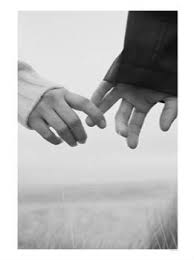I am again having an “out-of-country” experience. Not only are these trips good for the mind, causing a break from the habits and chores of life. But they are also good for the soul- they stretch me to be someone other than my typical Self. Einstein noted that “the true value of a human being can be found in the degree to which he has attained liberation from the self.” I love having a break from the stress of being me.
One of the ways in which I find myself stretching is in the sense of isolation I feel when I’m in a place where I don’t speak the language. Being in another country isn’t the only place I feel this. And it doesn’t even have to be a foreign “tongue” per se, but can also be among people with a different mindset, worldview or technical expertise I don’t understand.
How often do you find yourself in the midst of a crowd wondering how you became so alone?
You may feel alone for several reasons, including a fear of being “discovered” that you don’t have the skills or expertise of those around you. Or maybe you are hiding some aspect of yourself that triggers your shame. Or you don’t like being asked to perform in a way you are not ready to do because of a limiting belief about yourself.
Or maybe you just don’t speak the language, in which case your (and my) isolation is an attempt to thwart the embarrassment of appearing foolish. Even though I speak marginal Spanish, I don’t relish the foolish feeling when I utter the wrong words.
Nietzsche stated, “the most common form of lie is the one uttered to oneself.” The “master emotions” of anger, shame and fear are at work when we are in our ego’s ‘primitive state’, attempting to keep ourselves safe, connected and accepted by our fellow travelers.
Your feel vulnerable, or exposed, because you don’t fully accept and honor yourself, rather than your belief that others don’t value or accept you.
And it’s not that you’ve fabricated this scenario out of thin air- it’s also rooted in your brain’s very real need to avoid harm, feel rewarded and be attached to others.
There is a way around it though- you don’t have to remain trapped in the snare of your brain’s ego, no matter where you find yourself stressed or traumatized, burned-out, stuck or isolated.
Learning to love yourself and the world around you, just as it is, allows you to embrace who you are but also nourishes the parts of your brain that keep you separated.
Your reptilian brainstem needs to be protected, or avoid harm, so learning to appreciate what is safe and nurturing in your existing environment will soothe the neural networks that want to run or fight the perceived threats in your life. Who are the people in your life that reliably make you feel safe? Be with those people. What innocent memories soothe you? Think about those, often.
Your mammalian brain’s limbic system needs to feel rewarded, or appreciated, so begin to notice the existing aspects of your environment or social networks that reinforce your positive qualities. Do things that build upon your strengths, and be with people who recognize them.
Your more recently-evolved cerebral cortex (higher brain) needs to be attached and connected to others, so that enriching your social life to be with others who also protect and appreciate you will calm your monkey brain immeasurably.
As Rick Hanson recently suggested, loving the world in ways that also enhance your own primal instincts can help you, the world and others in it flourish, while also enhancing your innate healing systems.
If you’re ready to learn how to manage the stress when your mind keeps your body stuck in the fear of vulnerability, Click here to download the Free Report Calm Your Body & Mind, Reduce Your Stress: 10 Easy Ways to Counteract Life’s Rollercoaster, and you’ll get some great relaxation techniques and mindfulness training to reduce your stress and anxiety. Please forward to a friend if you liked this post!
Holly Woods, Ph.D. uses Integral Coaching, Somatic Experiencing and mindfulness techniques to help adults who are weighed down by stress or trauma, and who want to be free of the overwhelm so they can find a life full of joy and purpose.





“Learning to love yourself and the world around you, just as it is, allows you to embrace who you are but also nourishes the parts of your brain that keep you separated.” — I love this! It is so true, but I’ve never thought of it that way before. Thanks!